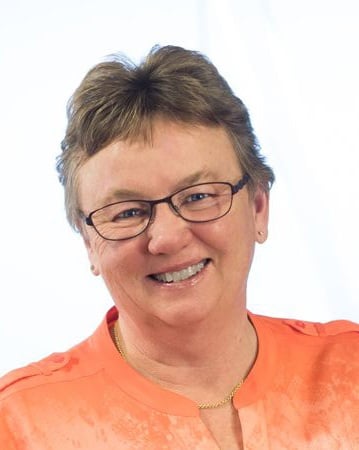 I thought I was ready. I thought I was ready to have my mother die. She was 95 and a half, after all, and had a really wonderful life. She had been getting frailer and less able to enter into conversations. But, when the time came it was so much harder than I imagined.
I thought I was ready. I thought I was ready to have my mother die. She was 95 and a half, after all, and had a really wonderful life. She had been getting frailer and less able to enter into conversations. But, when the time came it was so much harder than I imagined.
I consider my mom’s contentment and gratitude for life over the past several years a blessing. She shared her gratitude for her beloved husband of 72 years, for the ability to continue to be engaged in the world by watching the news, and being aware of what everyone in the family was doing. Whenever I visited her, she made me feel like I was the most important person in the world.
It was a good end of life – no suffering, no pain. She had five days in the hospital with excellent care, including a fabulous palliative care doctor who couldn’t have been kinder when she told Dad unequivocally that Mom was dying. The excellent care continued when there was nothing more to be done but to make her comfortable.
I was grateful for the health care directive that she had made six years ago and that I could pull it up on my iPad and read it to the family. I appreciated the primary care doctor, who took time with my parents several years ago to thoroughly discuss what a DNR (Do Not Resuscitate) and a DNI (Do Not Intubate) meant, and who helped to create a POLST (Provider Order for Life Sustaining Treatment) that was clear. Even with both of those documents, it was still hard in the end.
I’m grateful Mom and Dad were clear that she should be cremated and her ashes buried in a spot special to them after a service at their church in northern Wisconsin, where they’d lived for 35 years. However, even with these two things decided ahead of time, there were so many decisions to make: choose a funeral home, write obituaries, plan a service (what were her favorite hymns? – no one knew), choose an urn, notify people (fortunately I had a decent list from 2 years ago when we hosted a 70th-anniversary party for them) but people move, change email addresses, don’t have email addresses, die. And making all those decisions when you are in the fog of grief isn’t as easy as one would think.
In addition to all the tasks and decisions, there is the emotional side of telling people, having people call, email or text – or not hearing from some people at all. Facebook is fabulous for connecting with people in this digital age, and I’m grateful for everyone who reached out through FB. But I also learned there is nothing like a phone call or a handwritten note – perhaps this is a reflection of my generation.
Loss of a Spouse
Several years ago, a good friend told me that when her father died, she wasn’t prepared to see how sad her mother was and for the challenge of dealing with her grief while supporting her mother in her even more significant loss. That stuck with me at the time and has been true for me. My father is 94, has limited vision, has just started using a cane, and continues to write letters to the editor and be very involved with the world. He was Mom’s full-time caretaker these last years, and his optimism and love kept her going longer than we ever believed possible. So, the hole in his life is huge, and he is learning to fill his time in new ways.
You may want to consider what you can do when you’re alive to make it as easy as possible for your survivors. My wife Sally and I updated our estate plans this summer. We created a document that lists who needs to be notified and what to do if we die together. The chances we will ever need these plans are slim, but life happens, and as people who plan, we want to be as prepared as possible. We realize that there is more to do than just planning what happens to our money and property when we die. We also need to consider what will happen to our remains and plan at least an outline of what kind of service/gathering we’d like. We would also like to start a draft of an obituary together and make sure all this information is easily accessible.
Over the years, I have strongly urged many of you to get your estate planning done – whether you were young with small children or had grandchildren. I tried to convey that estate planning is never done; it is something that you need to review periodically because our lives change. What is important to you when you have underage children differs from when you have adult children and/or grandchildren. The conversations you have around your estate plans and your end-of-life plans are all important. To the extent that you share them with any of your family or close friends is a gift beyond measure to them.
Estate Planning: A Free Guide to Get Started

Investment Advisory services offered through Birchwood Financial Partners, Inc. an SEC Registered Investment Advisor.
All written content is for information purposes only. It is not intended to provide any tax or legal advice or provide the basis for any financial decisions. All financial products have an element of risk and may experience loss. Past performance does not indicate future returns. Opinions expressed herein are solely those of Birchwood Financial Partners, Inc., and our editorial staff. Material presented is believed to be from reliable sources; however we make no representations as to its accuracy or completeness. All information and ideas should be discussed in detail with your individual adviser or qualified professional before making any financial decisions. We are not affiliated with or endorsed by the Social Security Administration or any government agency. The inclusion of any link is not an endorsement of any products or services by Birchwood Financial Partners. All links have been provided only as a convenience.



